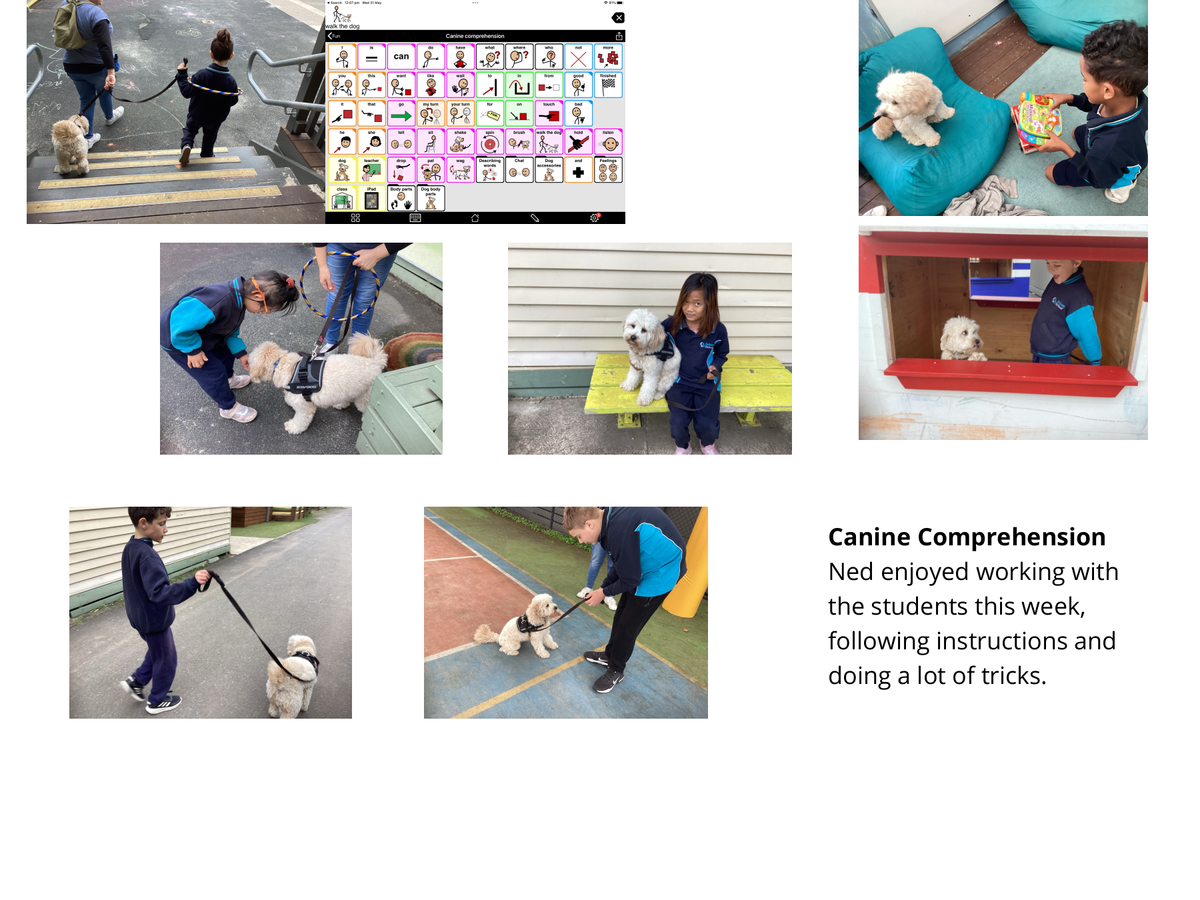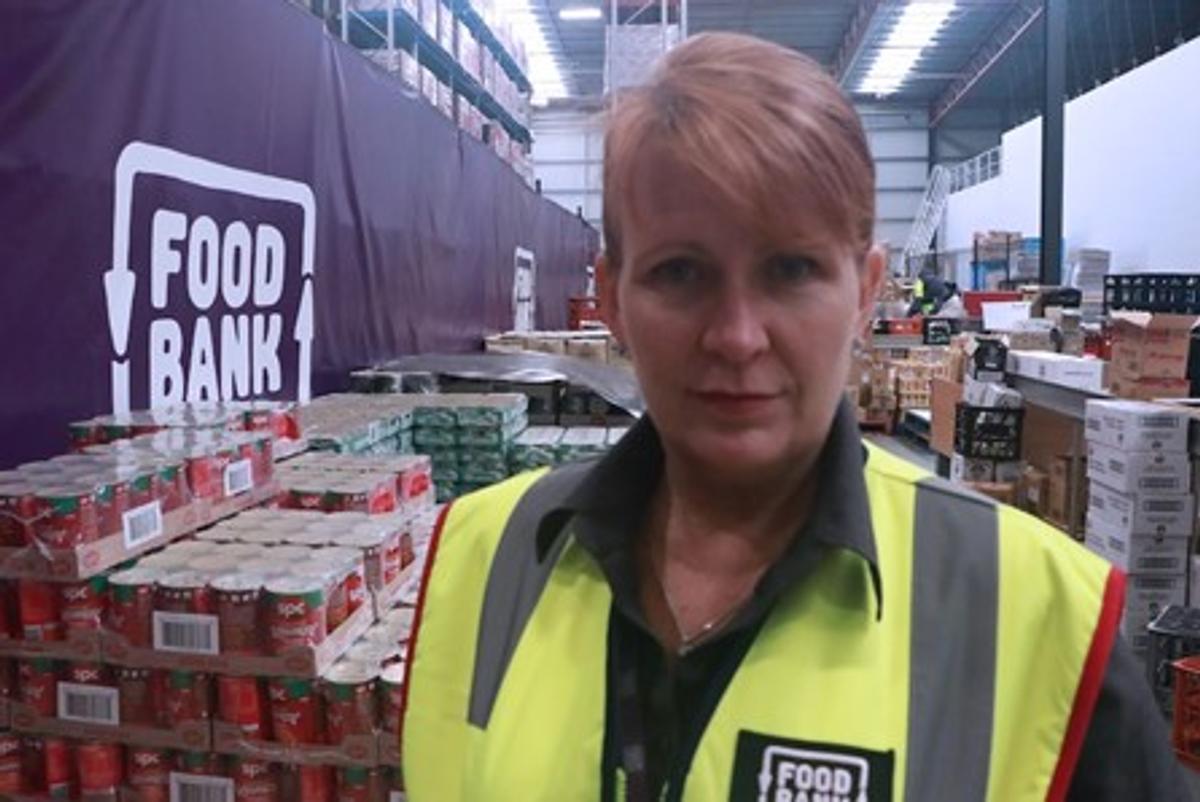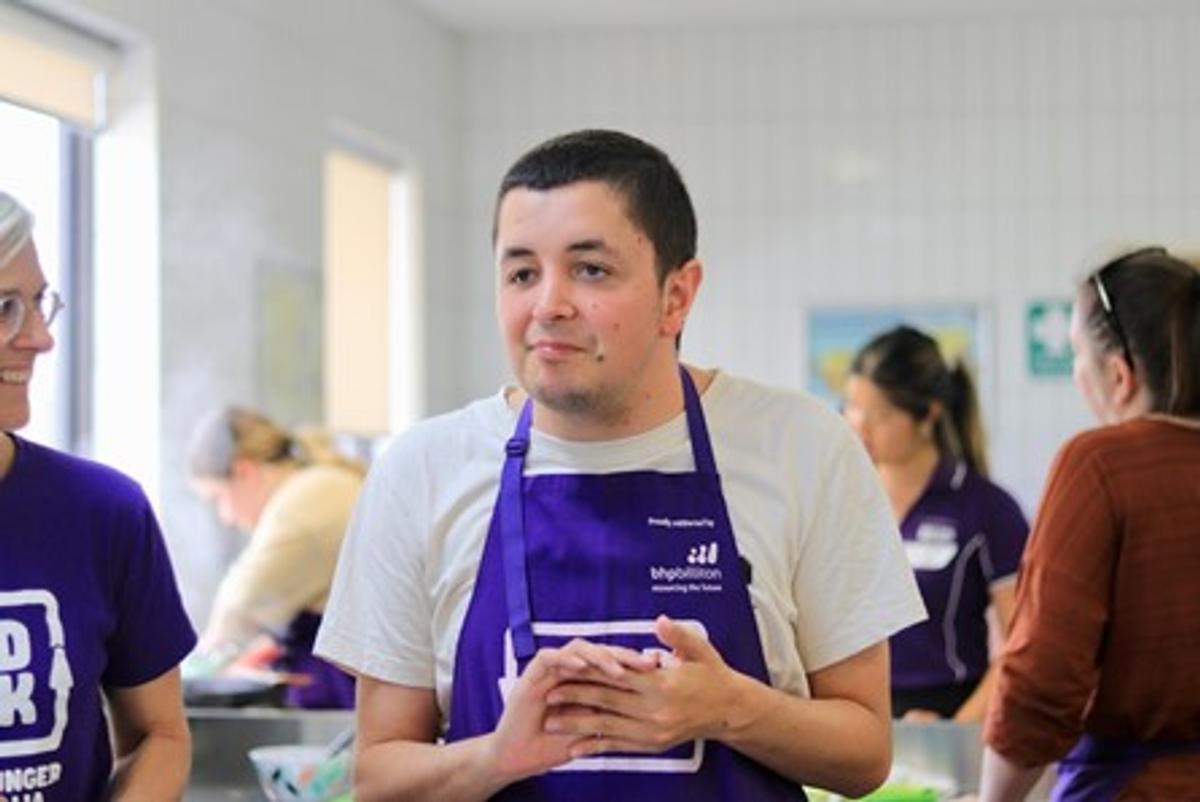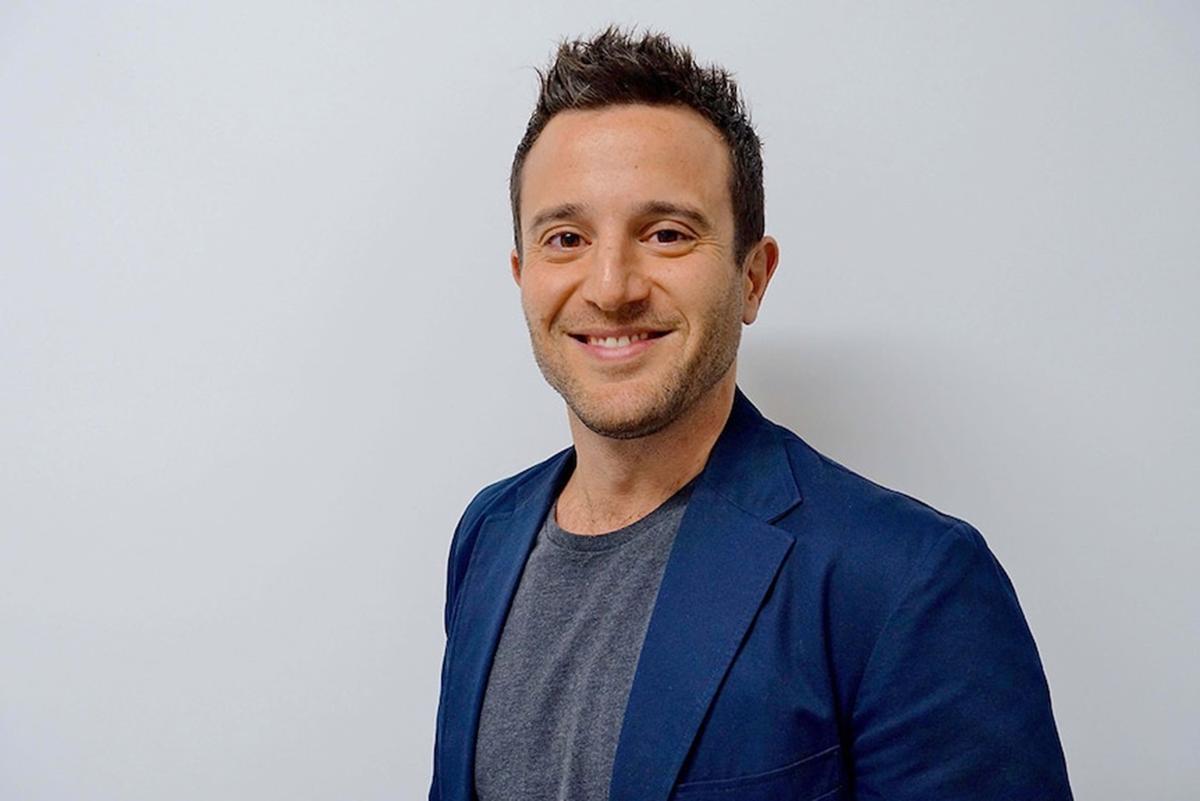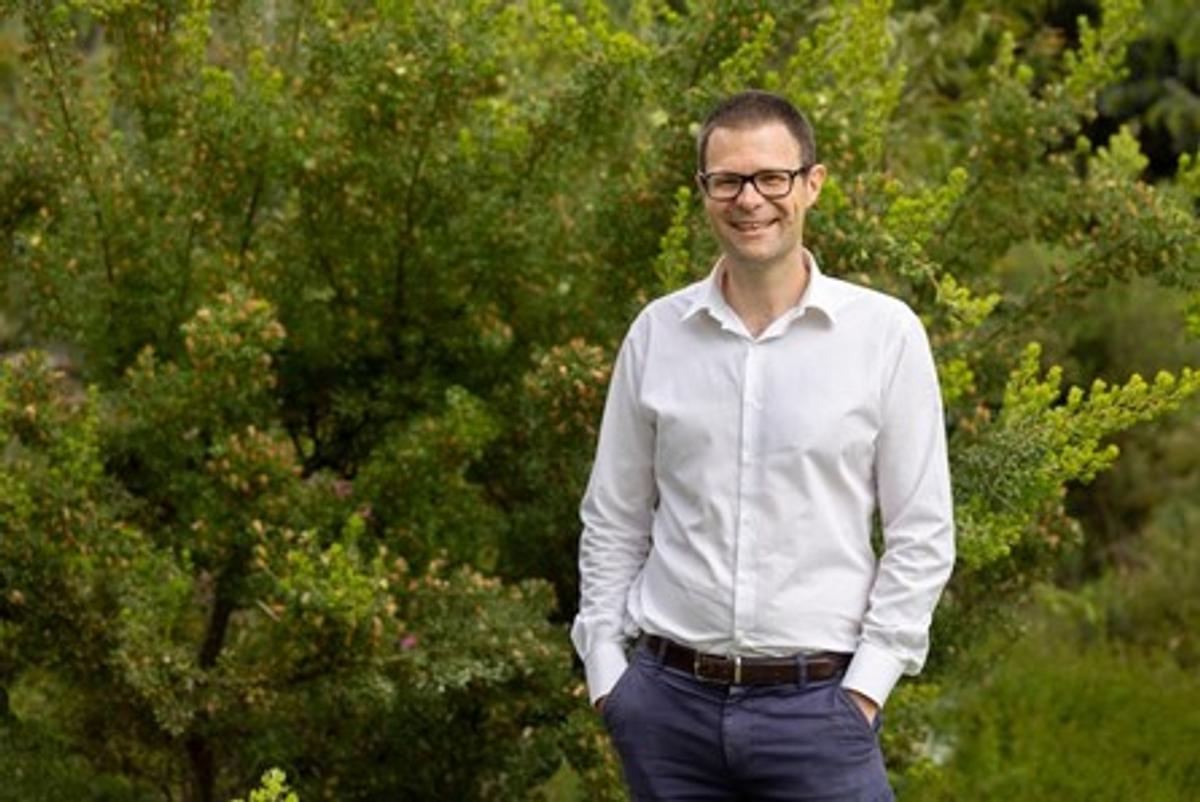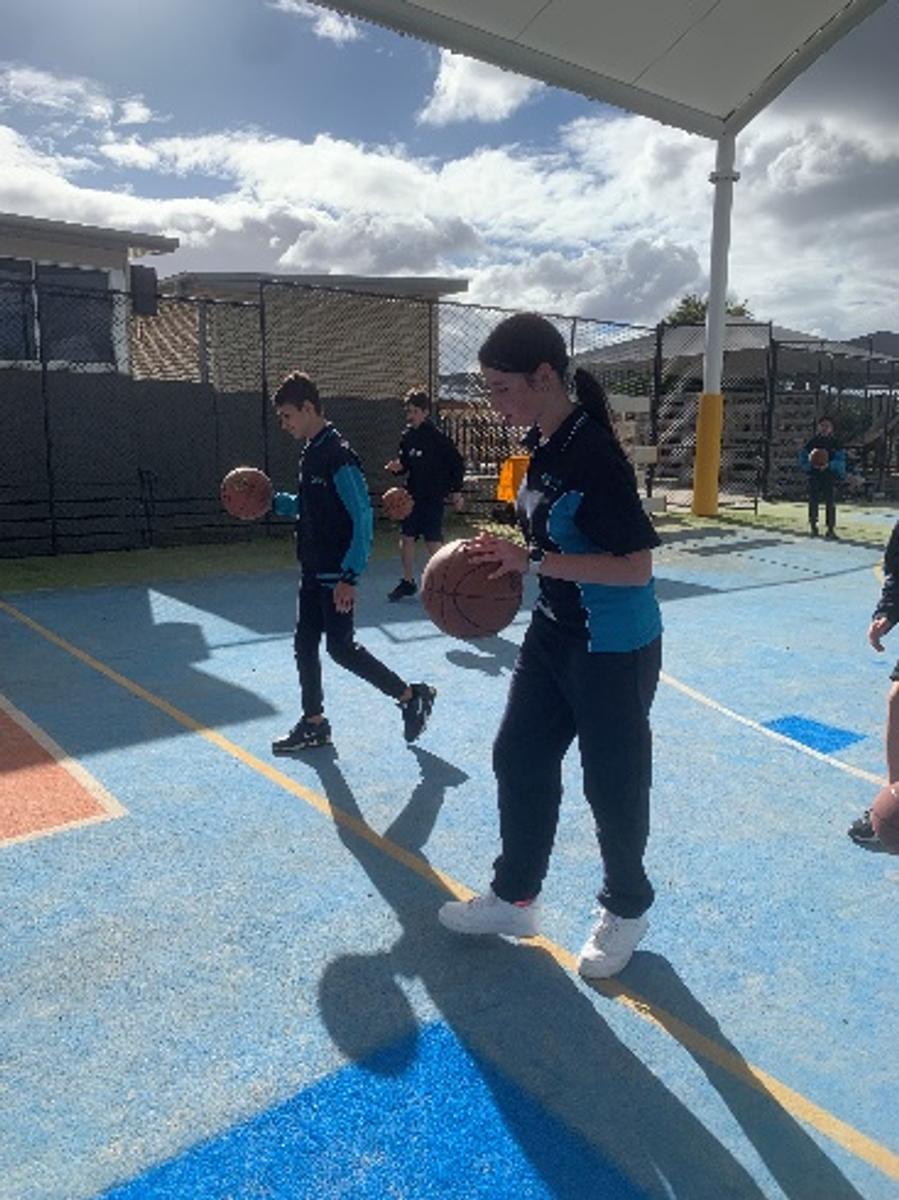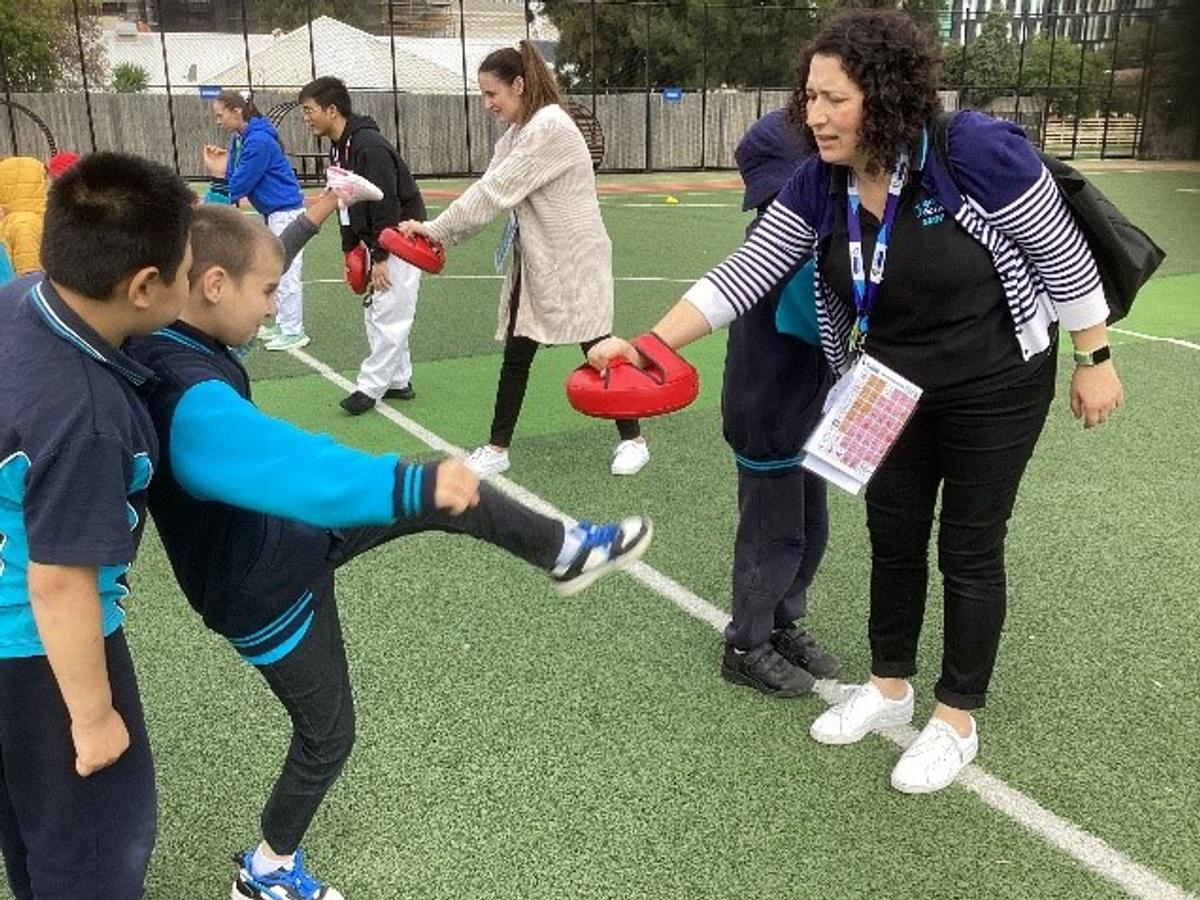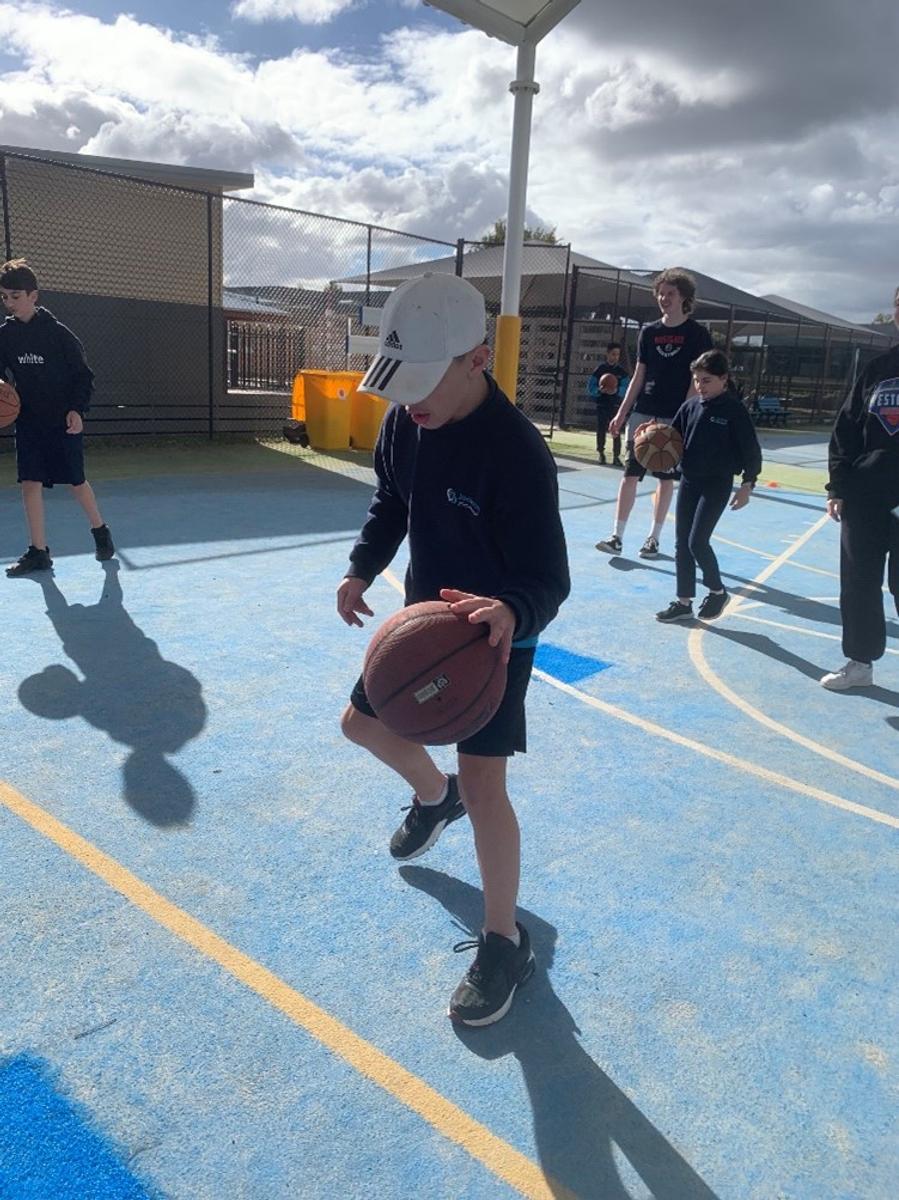Health & Wellbeing News

ALLIED HEALTH
As a part of the Jackson Social Skills Initiative this week your child learned about initiating conversations. Teaching students how to start a conversation is helpful to support them with engaging with those around them. This is also important for developing social relationships and employability skills.
Teaching your child to initiate as simple as:
1. Modelling initiating a conversation using greetings (e.g. ‘hi’ or ‘how are you?’)
2. Creating opportunities for them to initiate (e.g. having something of interest to spark a conversation)
Over the course of the week students have practiced initiating conversations by engaging in games such as the turn taking ball, pass it on and broken telephone.
Students used AAC (Alternative and Augmentative Communication) this included learning the signs for 'like' and ‘doing/making/watching’ to spark conversation.
Check out the AAC in Action this week!
CANINE COMPREHENSION
HEALTH AND FITNESS
In our last newsletter I shared the first half of an article by ABC journalist Nick McAllister which was published on the ABC Website a month or so ago. Nick is autistic and he writes about the challenges faced by neurodiverse individuals in regard to the health and fitness challenges faced by individuals like him. This second half of the article discusses challenges faced regarding food and nutrition. Nick has asked us to share his article with our family, friends and wider community.
COOKING CLASSES TAILORED TO SUIT
Food relief charity Foodbank knows the importance of diet and nutrition in staying healthy, particularly for people with a disability.
Chief executive officer Kate O'Hara said the organisation hoped to empower people to enable them to choose and prepare healthy food.
Kata O'Hara says people living with disabilities are more likely to experience food insecurity.(ABC News: Nicolas Perpitch).
"People with disability are more likely to experience barriers that contribute to poorer health outcomes such as obesity, diabetes, poor oral health when compared to non-disabled people," she said.
"Having a disability makes households more likely to experience food insecurity, and these education and cooking programs tackle these issues hands on.
"Unfortunately, there are less opportunities for people with disability to address the health inequities because mainstream health education programs and resources are not tailored to their needs."
Josef Bandera has nothing but praise for Foodbank's cooking program. (ABC News: Ashleigh Davis)
"It's taught me how to work with different people and different food and I've become more confident in the kitchen."
Kate said another participant had begun volunteering, preparing healthy food for her local football team after completing the program.
"Anecdotally we have seen many benefits to our participants, people have developed lots of social connections and made new friends, socialising together outside of the program sessions," she said. "The impacts of the program have been amazing."
Confidence key in the kitchen
Dietitian Themis Chryssidis said the more confident people were in the kitchen, the more likely they were to prepare nutritious meals.
Themis Chryssidis says buying pre-cut vegetables can help improve nutrition for people with a disability. "Individuals with a disability may face physical challenges in the kitchen making preparing food difficult, however, disability is not just physical, with intellectual disabilities also posing major barriers for some people," he said.
"Some people living with a disability find some tasks more difficult than others [but] with additional kitchen support, some handy utensils, and smart purchases in the supermarket such as pre-chopped vegetables, individuals living with a disability can still prepare delicious and nutritious meals."
Professor Andrew Whitehouse from the Telethon Kids Institute said there were likely to be many contributing factors as to why obesity might be more common for those with autism.
Andrew Whitehouse is a professor of autism research and works at the Telethon Kids Institute. "For example, we think that the selective diets may play a role as well as certain medications which may have a weight gain as a side effect," he said. An autistic person with selective diet will only eat foods they consider to be safe or acceptable, avoiding foods with a particular taste, texture, or colour. Some may dread the thought of certain foods and cannot bear to touch or even be near them. "In a small number of cases, there may be other health and medical conditions that increase links with obesity," he said. As for me, since engaging Jake I've noticed my motivation levels have increased and I actively look forward to my exercise session. Although I still like to indulge in a carbonara and garlic bread as no-one can be good all the time.
TOP TIPS TO GET ACTIVE EVERY DAY
The following article can be found on the Get Active Victoria website. Get Active Victoria is a very informative and useful website for you to join. It is free and provides a wealth of resources on fitness, movement and health issues.
If you struggle to find time and motivation for regular exercise, you’re not alone.
Joining a gym or pounding the pavement isn’t for everyone, and it doesn’t have to be. By looking at exercise in a different way and making a few small changes, you can create healthy habits that stick.
START WITH FINDING YOUR ‘WHY’
Understanding why you want to be active can help get you motivated, set goals and keep yourself accountable. Ask yourself:
What are the important areas of your life that could be enhanced if you improve your health through exercise?
What types of movement make you feel good?
It doesn’t matter how big or small the goal, it just has to be meaningful to you. That could be returning to work after an injury, going for a longer walk with your dog or getting a better night’s sleep.
CHALLENGE WHAT ‘EXERCISE’ MEANS AND FOCUS ON MOVING
The human body is designed to move. Any extra movement you can add to your day is a positive, so focus on simply moving rather than intense exercise.
Daily physical activity can include many basic day to day activities, such as:
- 10 minutes of weeding
- Walking around the room while on a phone call
- A quick stretching session in your lounge room
- Getting up every hour and walking away from your desk.
BREAK IT UP AND BOOST YOUR MOOD
Getting your recommended amount of physical activity doesn’t have to mean a 30-minute workout every day. Spreading it out into smaller blocks can make it easier to fit in and improve your mental health, as consistent exercise elevates mood and reduces the production of stress and anxiety causing hormones.
Movement increases blood flow to the brain, improving concentration, memory, creativity, learning, and mental stamina. Physical activity also increases endorphins – your feel-good hormones – which can drastically improve mood.
ADD STRETCHING TO YOUR ROUTINE
Stretching is another form of exercise and is just as important to include in your day, especially if you work at a desk. Stretching warms up your body and allows blood to flow, which relieves muscle fatigue and sends extra blood to your brain.
By reframing the way you think about exercise and finding ways to incorporate small amounts of movement into your daily routine, you are on your way to improving your health and wellbeing in a sustainable and enjoyable way.
The health and fitness of students at Jackson School is in part, supplemented by funding from the Federal Government’s Sporting Schools Initiative and the Victorian Government’s Active Schools Program. Funding for this year will total an estimated $32000 for our school. The Active School’s program currently provides the funding of a Personal Trainer for students from Years 3-10 PLT groups within the school and operates three days per week. Attendance is voluntary but highly encouraged by class teachers to help increase movement and fitness in our students.


